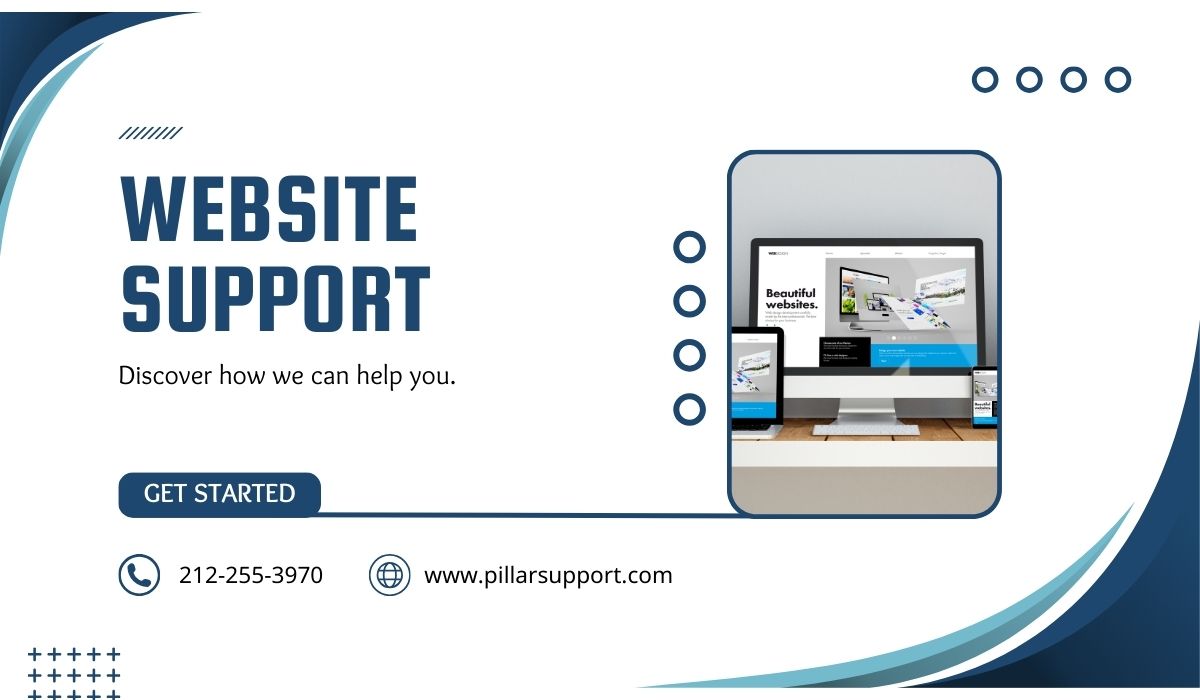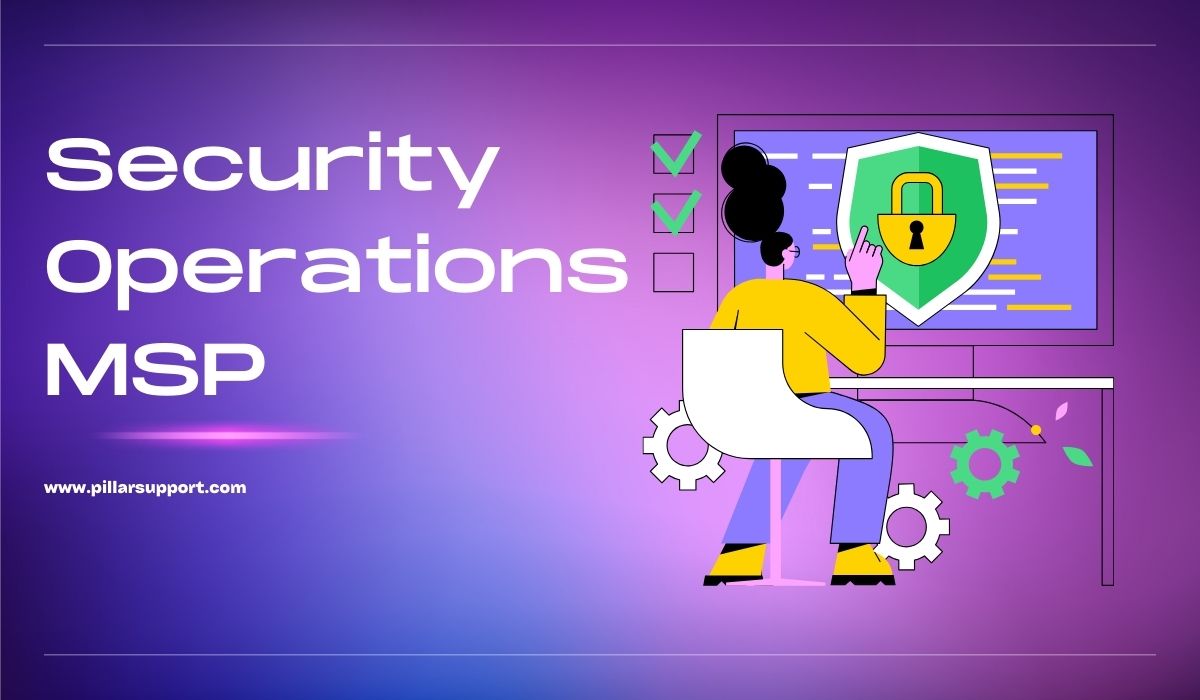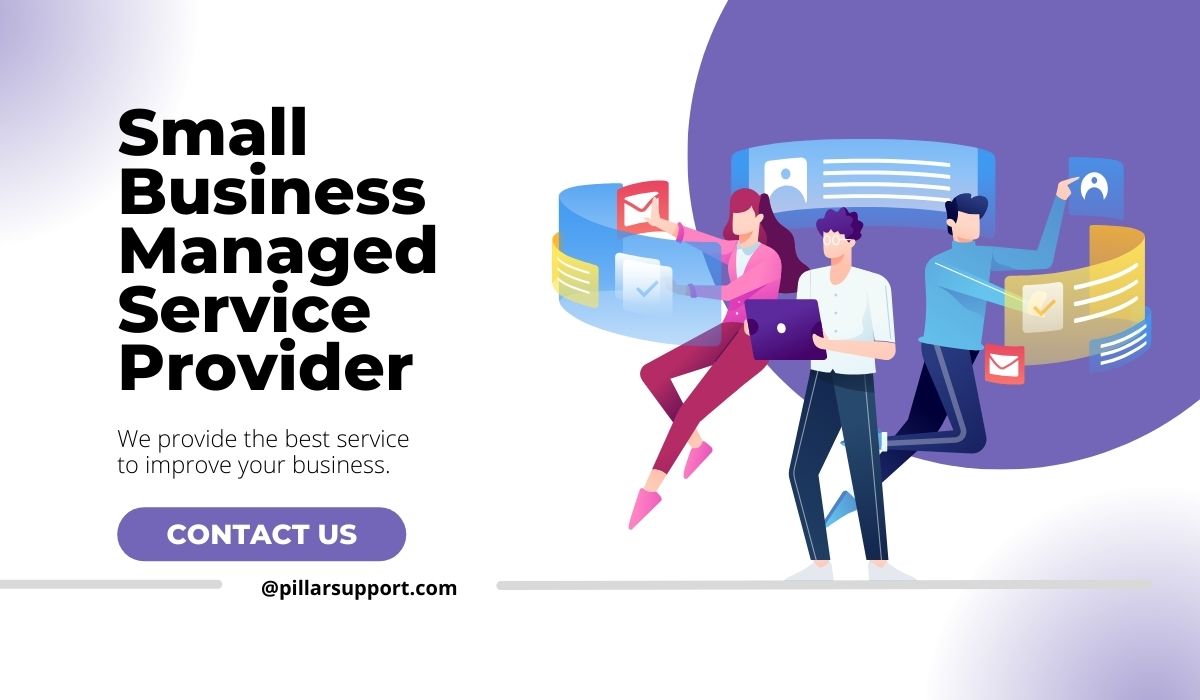Elevate Your Website with Expert Website Support
In today’s digital landscape, having a professional and reliable website is crucial for businesses to establish their online presence and effectively engage with their target audience. However, maintaining and supporting a website can be a complex and challenging task, especially when businesses need to find support for a highly customized website developed by another company.
Finding a reliable and knowledgeable support provider for such websites can be difficult, as many companies prefer to support only the websites they have developed themselves. This can leave businesses with limited options and the potential for hidden surprises. Some support providers may recommend a costly “rip and replace” approach, which not only results in a loss of the initial investment but also disrupts the continuity of the online presence.
At Pillar Support, we understand the importance of providing comprehensive website support services, regardless of whether we developed the website or not. We recognize the significant investments businesses have made in their websites and the need to preserve and enhance their online presence. That’s why we offer support for legacy websites through an extensive technical audit of the code and web host. This allows us to make informed recommendations for repairs or host replacements, ensuring the website continues to operate smoothly and efficiently.
Having reliable website support can have a profound impact on the success of an online presence. It ensures continuous functionality, protects against cyber threats, and optimizes website performance. With Pillar Support, businesses can confidently navigate the challenges of maintaining and supporting their highly customized websites, knowing that their online presence is in capable hands.
Table of Contents
Types of Website Support Services
Website Maintenance
Regular website maintenance is essential to ensure optimal performance and functionality. It involves tasks such as updating software, plugins, and themes, checking for broken links, optimizing database performance, and removing spam comments. By performing these routine maintenance tasks, businesses can prevent potential issues, improve website stability, and provide a seamless user experience. Regular maintenance also helps to identify and fix any bugs or errors that may arise, ensuring that the website operates smoothly and efficiently.
Security Updates and Monitoring
Cyber threats are a constant concern in today’s digital landscape. Websites are prime targets for hackers looking to exploit vulnerabilities and gain unauthorized access to sensitive data. Regular security updates and continuous monitoring are crucial to protect against these threats. Security updates involve patching vulnerabilities in the website’s software, plugins, and themes to prevent potential breaches. Continuous monitoring involves actively monitoring the website for any suspicious activities, such as malware injections or unauthorized login attempts. By staying vigilant and implementing robust security measures, businesses can safeguard their website and protect their valuable data.
Content Updates and Management
Keeping website content fresh and engaging is vital for attracting and retaining visitors. Regular content updates help to provide relevant and up-to-date information to users, improving their overall experience. This includes adding new blog posts, updating product information, refreshing images, and ensuring that all links are working correctly. Content management systems (CMS) make it easier to manage and update website content, allowing businesses to make changes quickly and efficiently. By regularly updating and managing website content, businesses can keep visitors engaged, encourage repeat visits, and improve search engine rankings.
Performance Optimization
Website speed and performance play a crucial role in user experience and search engine rankings. Slow-loading websites can lead to high bounce rates and frustrated visitors. Performance optimization services focus on improving website speed and overall performance. This includes techniques such as caching, image optimization, code optimization, and minimizing server response time. By optimizing website performance, businesses can provide a fast and seamless user experience, increase visitor engagement, and improve conversion rates. Additionally, search engines like Google consider website speed as a ranking factor, so a well-optimized website can also improve search engine visibility.
Website support services encompass various aspects of maintenance, security, content updates, and performance optimization. By investing in these services, businesses can ensure their website operates at its best, providing a positive user experience, protecting against cyber threats, and staying competitive in the online marketplace.
Why Professional Website Support Matters
Professional website support services offer several benefits that can greatly enhance the overall performance and success of a website. Here are some key advantages:
- Enhanced Security: Professional website support ensures that your website is protected against potential security threats. This includes regular security audits, vulnerability assessments, and timely updates to address any security loopholes. With the increasing number of cyber threats, having a dedicated team to monitor and safeguard your website is crucial in preventing data breaches, hacking attempts, and other malicious activities.
- Improved User Experience: A well-maintained website provides a seamless and enjoyable user experience. Professional support services help optimize your website’s performance, ensuring fast loading times, smooth navigation, and compatibility across different devices and browsers. By regularly monitoring and resolving any technical issues, such as broken links or error messages, professional support helps create a positive impression on visitors, leading to increased engagement and conversions.
- Reduced Downtime: Downtime can be detrimental to any online business, resulting in lost revenue, decreased customer trust, and damage to your brand reputation. Professional website support services employ proactive monitoring tools and techniques to identify and resolve potential issues before they escalate. This minimizes the risk of unexpected downtime and ensures that your website remains accessible and functional around the clock.
- Expertise and Technical Knowledge: Professional website support teams consist of experienced professionals who possess in-depth knowledge of various web technologies and best practices. They stay updated with the latest trends and advancements in the industry, allowing them to provide valuable insights and recommendations for optimizing your website’s performance. Their expertise can help you make informed decisions regarding website design, content management systems, and other technical aspects, ultimately leading to a more effective online presence.
- Time and Cost Savings: Outsourcing website support to professionals allows you to focus on your core business activities while leaving the technical aspects to the experts. This saves you time and resources that would otherwise be spent on hiring and training an in-house team. Additionally, professional support services often offer flexible pricing models, allowing you to choose a plan that aligns with your specific needs and budget.
Opting for professional website support services offers numerous benefits, including enhanced security, improved user experience, reduced downtime, access to technical expertise, and cost savings. By investing in professional support, you can ensure that your website remains secure, performs optimally, and provides a positive experience for your visitors, ultimately contributing to the success of your online presence.
Pillar Support: Your Website Support Partner
Pillar Support is a leading provider of comprehensive website support services, dedicated to helping businesses optimize their online presence. With our team of experienced professionals, we offer a range of specialized services to ensure that your website operates at its best, allowing you to focus on your core business activities.
With our tag line “the only tech support call you need to make” it means that we cover websites too. As website developers, we know what to look for and what are common problematic components of a website. We use best-in-class hosting providers and have developers to tackle small and large issues as they arise.
Our expertise lies in providing tailored solutions to address the unique needs of each client. Here are some of the specific services and expertise that set Pillar Support apart:
- Website Maintenance and Updates: We understand the importance of keeping your website up to date. Our team handles regular maintenance tasks, including software updates, plugin installations, and content management, ensuring that your website remains secure, functional, and visually appealing.
- Security Audits and Vulnerability Assessments: Protecting your website from potential security threats is our top priority. We conduct thorough security audits and vulnerability assessments to identify any weaknesses or potential risks. Our team then implements robust security measures to safeguard your website and customer data.
- Performance Optimization: Slow-loading websites can lead to high bounce rates and decreased user satisfaction. Our experts analyze your website’s performance, identifying areas for improvement. We optimize various elements, such as code, images, and caching, to enhance loading times and overall user experience.
- Responsive Design and Compatibility: With the increasing use of mobile devices, having a responsive website is crucial. Our team ensures that your website is compatible across different devices and browsers, providing a seamless experience for all users.
- Proactive Monitoring and Issue Resolution: We employ advanced monitoring tools to detect any potential issues before they impact your website’s performance. Our team promptly resolves any technical glitches, such as broken links or error messages, minimizing downtime and ensuring uninterrupted access for your visitors.
- Technical Expertise and Consultation: Our professionals possess extensive knowledge of various web technologies and best practices. We stay updated with the latest industry trends, allowing us to provide valuable insights and recommendations to optimize your website’s performance and achieve your business goals.
At Pillar Support, we understand that every business is unique, and we tailor our services to meet your specific requirements. Whether you need ongoing website maintenance, security enhancements, performance optimization, or expert consultation, we are here to support you every step of the way.
Partner with Pillar Support and experience the peace of mind that comes with having a dedicated team of experts managing your website. Let us be your trusted website support partner, allowing you to focus on what you do best – growing your business.
Get Started with Pillar Support
Ready to optimize your website for a secure, efficient, and high-performing online presence? Look no further than Pillar Support. Visit our website today to explore our comprehensive website support services and take the first step towards enhancing your online presence.
With our team of experienced professionals, we offer tailored solutions to meet your specific needs. From regular maintenance and security audits to performance optimization and responsive design, we have the expertise to ensure that your website operates at its best.
Don’t let technical challenges hold you back. Trust Pillar Support as your dedicated website support partner. Visit our website now and discover how we can help you unlock the full potential of your online presence.
Frequently Asked Questions
What is Website Support and Maintenance?
Website support and maintenance refer to the ongoing activities and services required to keep a website functioning optimally. This includes tasks such as software updates, security monitoring, content management, performance optimization, and resolving technical issues.
How Much Should Website Maintenance Cost?
The cost of website maintenance can vary depending on factors such as the complexity of the website, the level of support required, and the size of the business. Some providers offer fixed monthly plans, while others offer customized pricing based on specific needs. It is best to consult with website support providers to get a tailored quote based on your requirements.
Why is Website Support Important?
Website support is important for several reasons:
1. Security: Websites are vulnerable to cyber threats, and regular support helps protect against hacking attempts, data breaches, and other malicious activities.
2. Performance: Regular maintenance and support ensure that your website operates smoothly, with fast loading times, minimal downtime, and a positive user experience.
3. Updates: Websites need to be regularly updated with the latest software versions, security patches, and content changes. Support services handle these updates to keep your website current and relevant.
4. Technical Expertise: Website support providers have the technical knowledge and expertise to handle complex issues, optimize performance, and provide valuable insights for improving your online presence.
5. Time and Cost Savings: Outsourcing website support allows you to focus on your core business activities while leaving the technical aspects to experts. This saves time, resources, and potential costs associated with hiring and training an in-house team.



